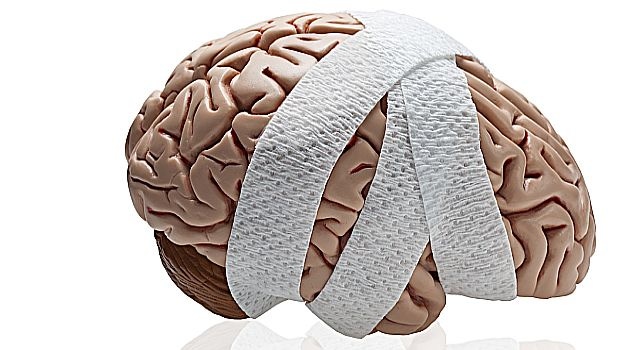Creatine Joins Omega-3s as Protective and Recovery Tool in Brain Injury
New research shows creatine supplementation can protect neuronal function and improve recovery from cognitive impairment due to oxygen deprivation in brain injury or disease.
February 5, 2015

Contact sports can be dangerous. This risk is part of the thrill athletes get in playing such sports. Of all the potential injuries from contact sports, brain injuries have gotten most of the attention in recent years. Even in non-contact sports such as cycling or running, falls can leave athletes with brain injuries. While improved safety equipment (helmets, etc.) and “sideline" injury assessment education get most of the attention, there has been research into how brain health and nutrition can improve recovery outcomes.
Over at the Brain Health Education and Research Institute, run by former longtime military doc Michael Lewis, M.D., there is a growing body of educational resources on brain injury, concussion and the possible management and recovery role of omega-3, primarily DHA (docosahexaenoic acid). The key to DHA’s benefit here is its foundational role as a building block for the neuronal cell wall. Lewis likes to make the analogy that just as it is best to use bricks to repair a brick wall, it is best to use DHA to repair the neuron cell walls following brain injury.
Another aspect of recovery from traumatic brain injury is maintaining and/or restoring energy and oxygen to the brain, and new research suggests in cases of oxygen deprivation (hypoxia), such as from brain injury, creatine supplementation may help keep the brain oxygenated and energized.
Researchers from University of Auckland, Australia, found creatine supplementation in healthy adults had a neuroprotective effect when the adults were subjected to acute hypoxia. According to the research publication in the Jan. 28 issue of the Journal of Neuroscience (35(4):1773-1780), creatine pretreatment has been shown to protect against hypoxic and anoxic (complete lack of oxygen) cell damage both in vitro and in animals, but this University of Auckland trial is the first to show these effects in humans.
Researchers didn’t focus on concussions, and they noted hypoxia and anoxia can result from both injuries and diseases (e.g. Parkinson’s, Huntingdon’s, Alzheimer’s, etc.). However, based on how athletes pre-load with creatine then use maintenance dosing for storage in the muscles, researchers looked at how creatine loading and dosing affected creatine storage in the brain and conducted neurophsychological analysis both before and after an hypoxic challenge—similar to breathing reduced oxygen at Mount Everest base camp. The placebo-controlled trial involved 15 healthy adult males and females between 22 and 55 years of age who were given either 7 days of creatine or placebo before the oxygen challenge.
Results, including cognitive function tests and neuroimaging, showed brain stores of creatine increased an average 9.2 percent, and the increased available creatine helped restore cognitive performance, especially attention, following the 90-minute oxygen deprivation. They also found creatine supplementation increased corticomotor excitability, a measure of motor function.
In the publication, the researchers discussed numerous possible mechanisms also noted in the prior in vitro research, including delayed hypoxia-induced membrane depolarization and maintenance of neuronal integrity. They further noted increased brain creatine levels prevent impaired protein synthesis and axonal damage from oxidative stress, thereby protecting against synaptic transmission failure and neuronal death. However, they theorized creatine in the human trial might have acted more directly on energy stores and promoted more efficient coupling of cell sites that both generate and consume ATP (adenosine triphosphate), the energy molecule. Also, creatine may have enhanced anaerobic energy provision by delaying neuronal high-energy needs during hypoxia.
This research suggests a number of potential applications for creatine supplementation in brain health, including both injury and disease, noted lead researcher Nicholas Gant, Ph.D., Department of Sport and Exercise Science, Centre for Brain Research, University of Auckland. “Energetic vulnerability contributes to the progression of many neurodegenerative diseases, so this is a really interesting area of possible study, he said. “Creatine is likely to have widespread effects across networks where oxidative metabolism or mitochondrial function is compromised." While their present study focused on healthy adults, his team’s latest work is looking at creatine supplementation in patients with existing brain injury.
With this new research on creatine, there are now two supplements with potential to impact serious brain injury by protecting neuronal structures and functions, and improving recovery from cognitive impairment.
You May Also Like




.png?width=800&auto=webp&quality=80&disable=upscale)